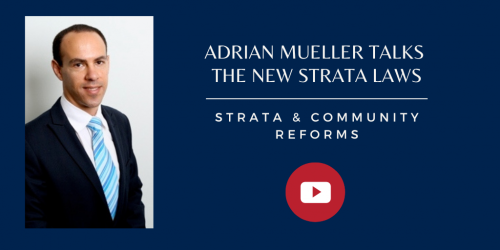Navigating Air Conditioner Replacements in NSW Strata
Replacing an air conditioner in a NSW strata property might appear simple on the surface.
However, the replacement of air conditioners can often become a point of contention if not managed correctly under the existing strata framework. This is where clear, comprehensive by-laws play a crucial role.
We frequently assist strata communities across NSW in navigating the complexities of common property and individual lot responsibilities. One area that consistently presents challenges is the replacement of air conditioning units.
While the Strata Schemes Management Act 2015 and its regulations provide a baseline, they often lack the specific guidance needed to address the nuances of modern air conditioning systems and the evolving needs of strata schemes.
The Pitfalls of Outdated or Non-Existent By-laws
Without well-defined by-laws addressing air conditioner replacements, strata schemes can face several potential issues:
- Disputes over responsibility: Who is responsible for the cost of replacement – the individual owner or the owners corporation? This can be particularly unclear when the unit services only one lot but is affixed to common property.
- Inconsistency in replacements: Without guidelines, owners may install different types or sizes of units, potentially impacting the building’s aesthetics, energy efficiency, and common property infrastructure (e.g., electrical load, drainage).
- Noise and vibration concerns: Upgraded or poorly installed units can lead to noise complaints affecting neighbouring lots, creating disharmony within the community.
- Insurance implications: Lack of clarity on responsibility can complicate insurance claims related to damage or malfunction of air conditioning units.
- Approval processes: Without a clear by-law outlining the approval process for replacements, committees can be burdened with inconsistent requests and lack a framework for fair decision-making.
The Solution: Proactive By-law Updates
The key to mitigating these risks and fostering harmonious living within your strata scheme lies in having clear and up-to-date by-laws specifically addressing air conditioner replacements. These by-laws can provide crucial guidance on:
- Defining responsibility for replacement costs
- Setting standards for replacement units.
- Establishing a clear approval process
- Addressing common property impact
- Defining maintenance responsibilities
Our specialist strata lawyers can:
- Review your existing by-laws: Assessing their adequacy in addressing air conditioner replacements.
- Draft new or amended by-laws: Tailoring them to the specific needs and characteristics of your strata community, ensuring compliance with current legislation.
- Guide you through the by-law change process: Ensuring all legal requirements are met for the successful implementation of new or updated by-laws.
Investing in clear and comprehensive by-laws regarding air conditioner replacements is an investment in the smooth operation and harmonious living of your NSW strata scheme.
Don’t wait for a dispute to arise – proactive review and updates can save your strata scheme significant time, money, and stress in the long run.
AIR CONDITIONER REPLACEMENT: NEED A BY-LAW UPDATE OR A SPECIFIC NEW BY-LAW?

Adrian Mueller I BCOM LLB FACCAL I Partner
Since 2002 Adrian has specialised almost exclusively in the area of strata law. His knowledge of, and experience in strata law is second to none. He is the youngest person to have been admitted as a Fellow of the ACSL, the peak body for strata lawyers in Australia. Profile I Linked
Contact Us
For all strata law advice including by-laws, building defects and levy collections contact our specialist NSW and Sydney strata lawyers here or call 02 9562 1266, we’re happy to assist.


